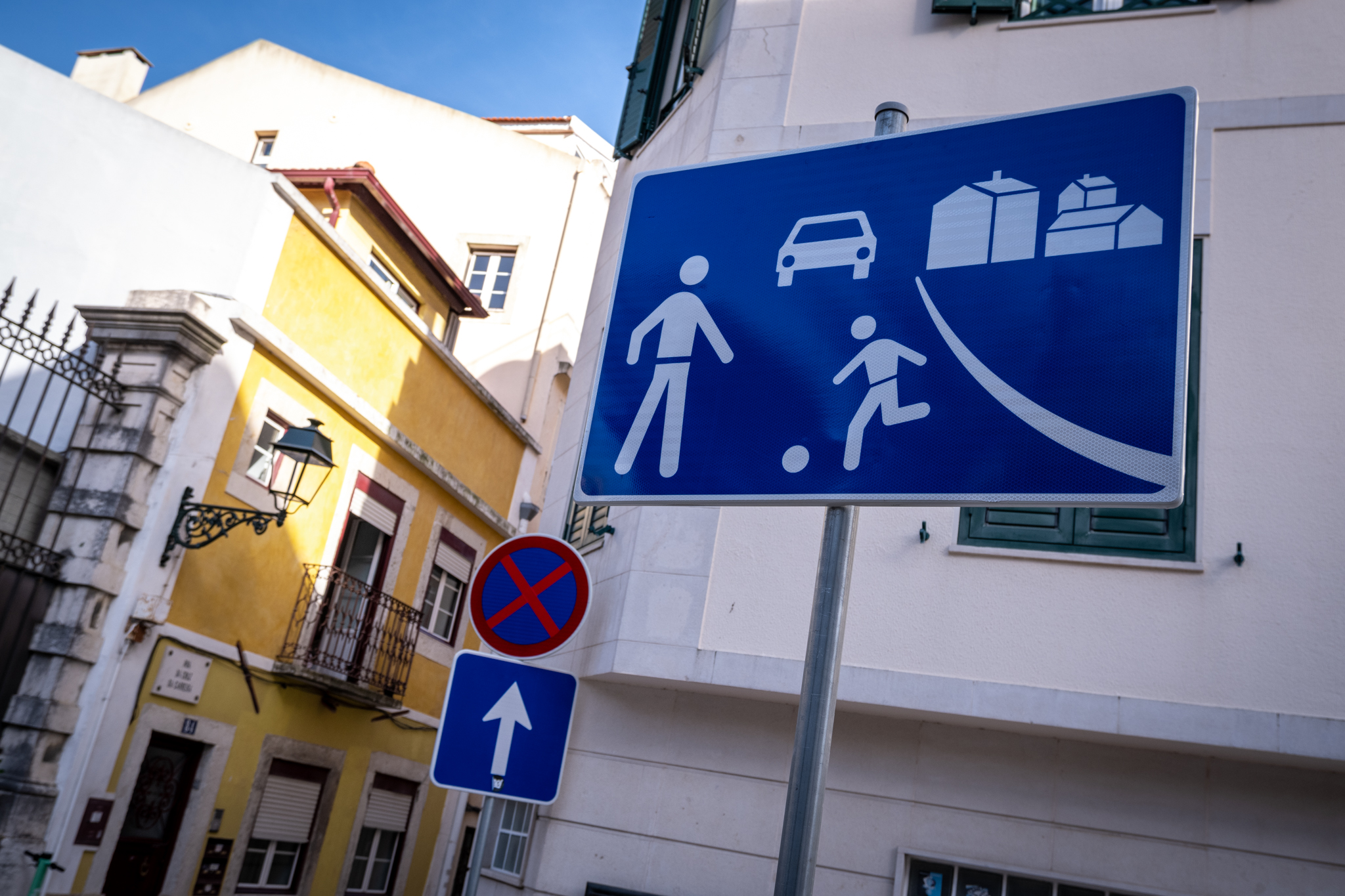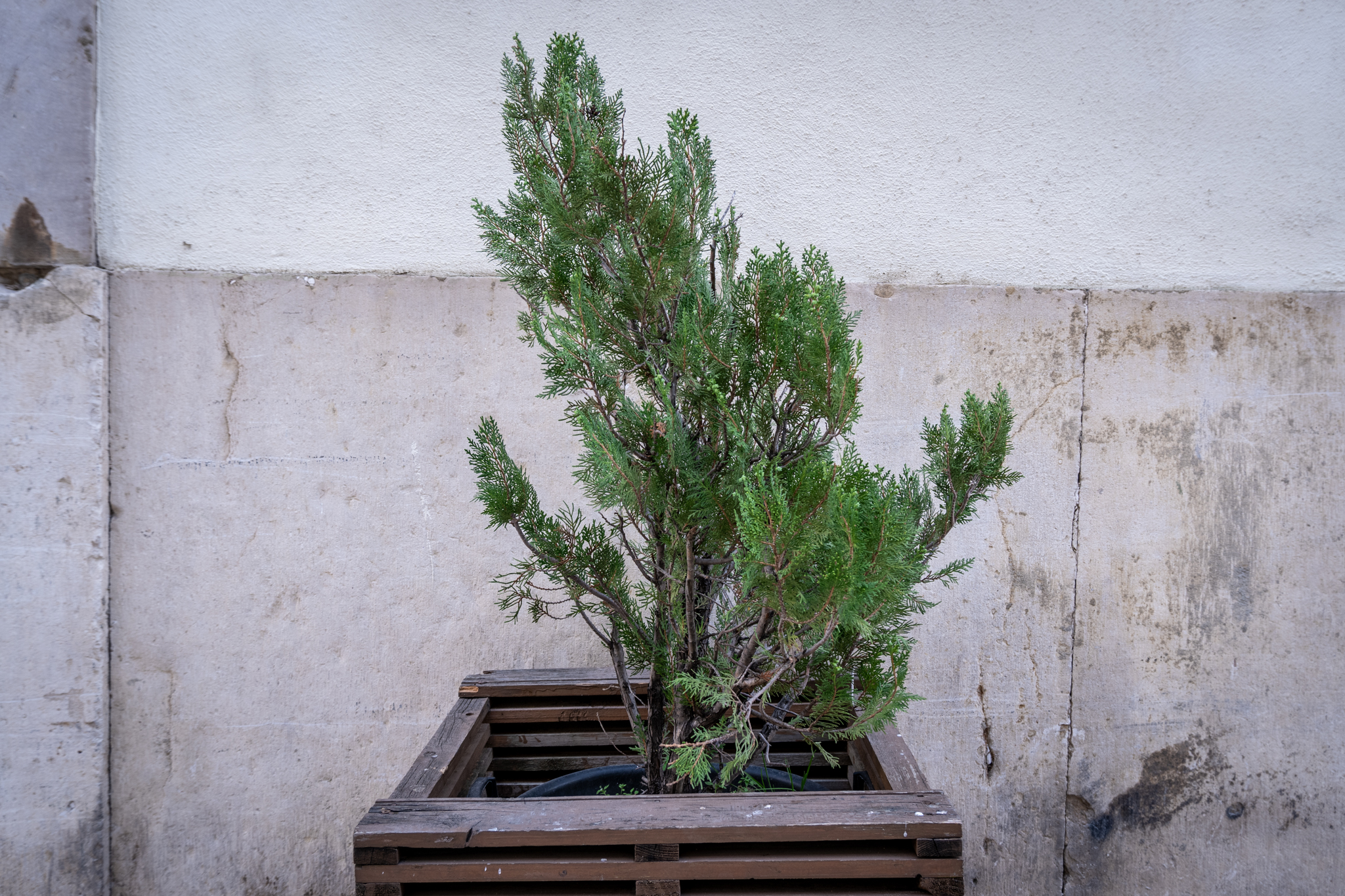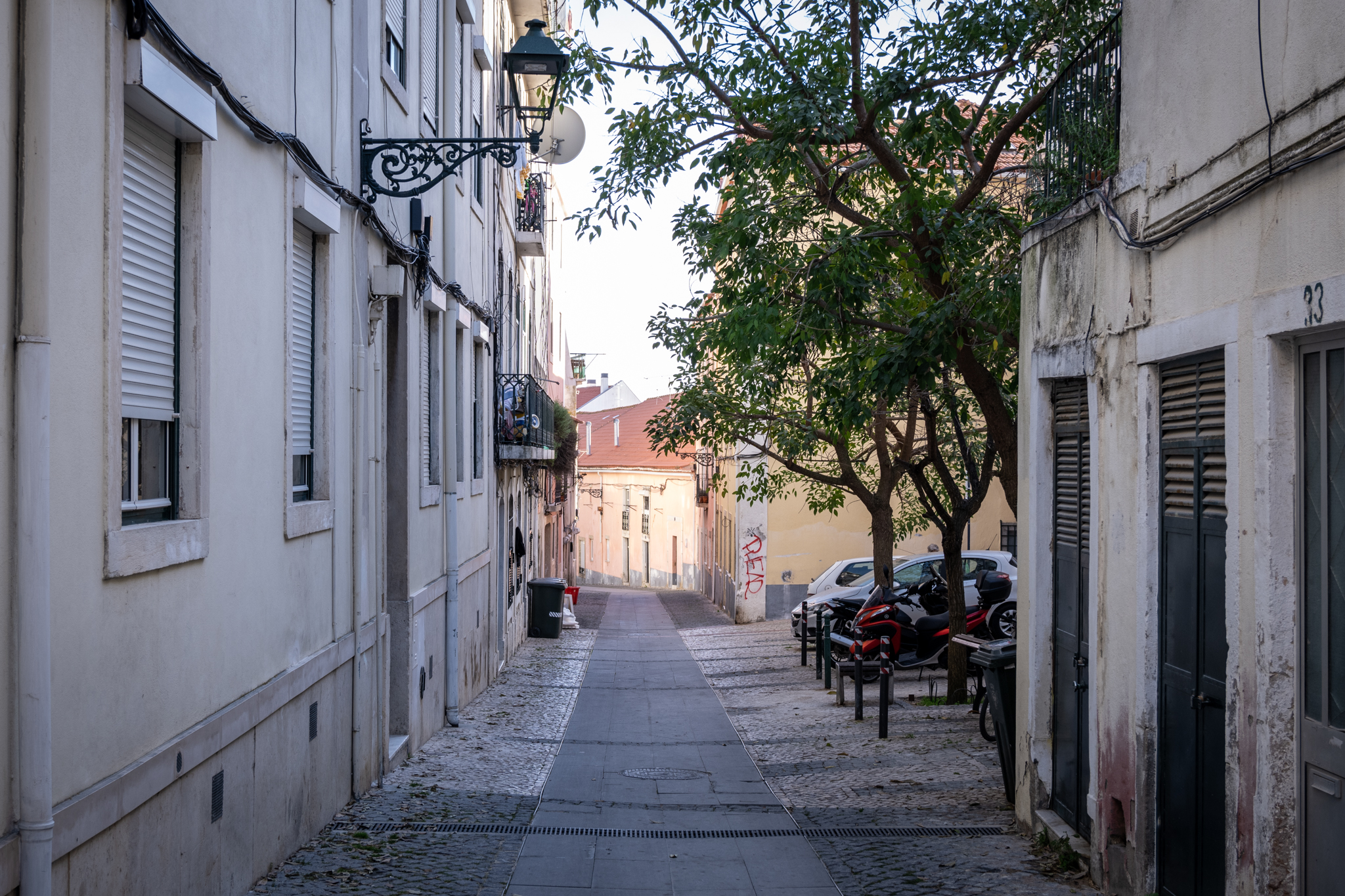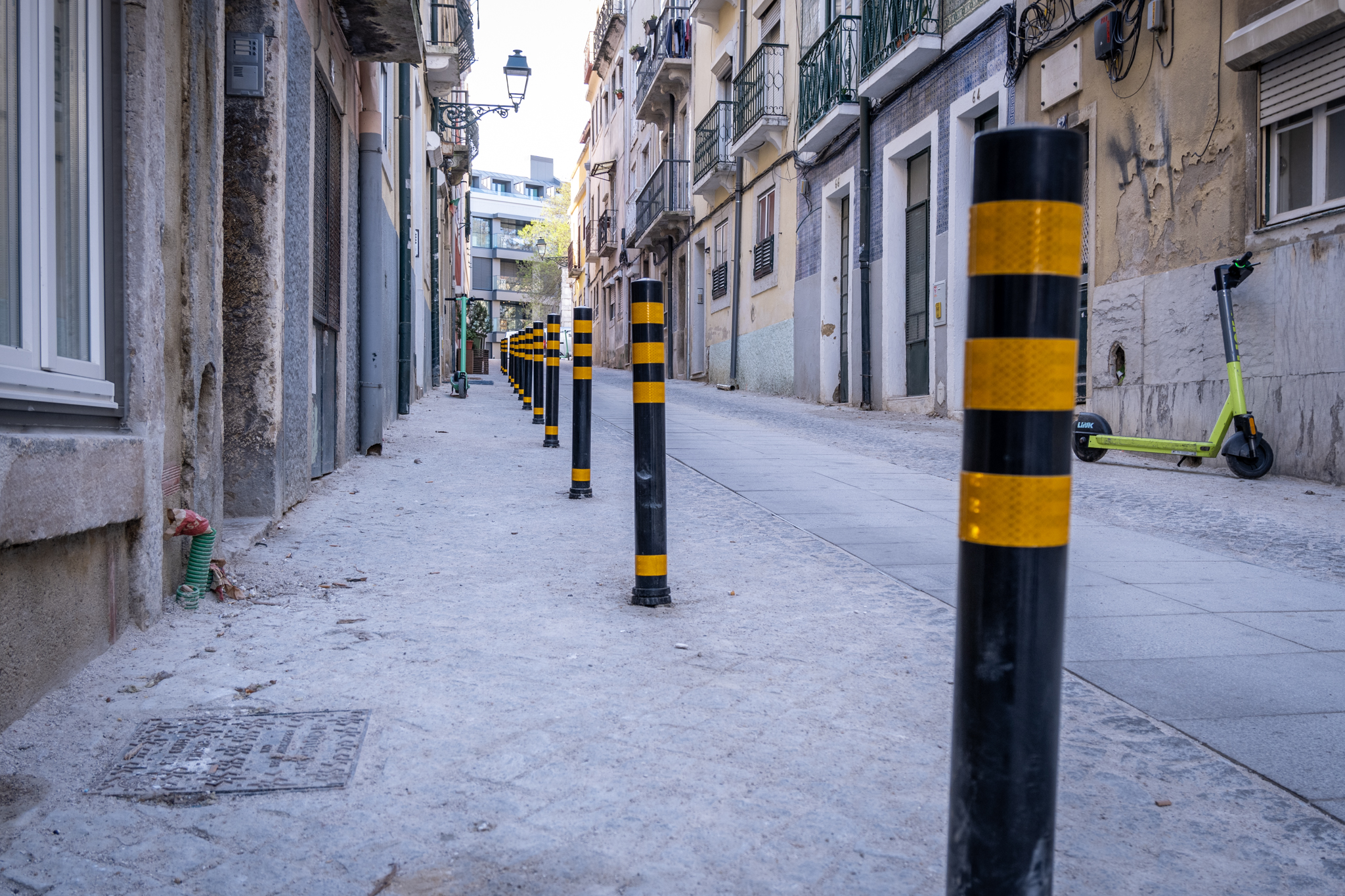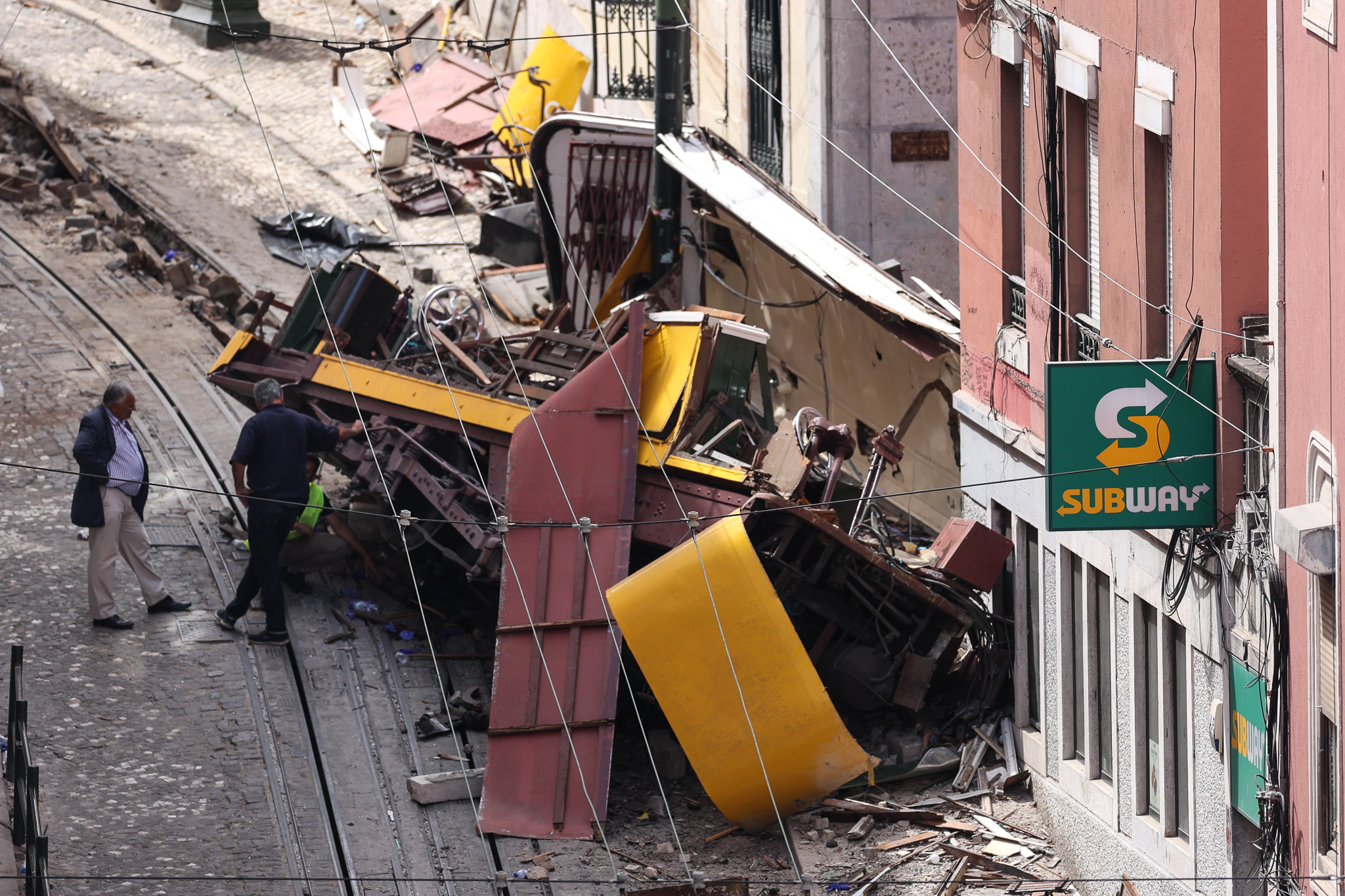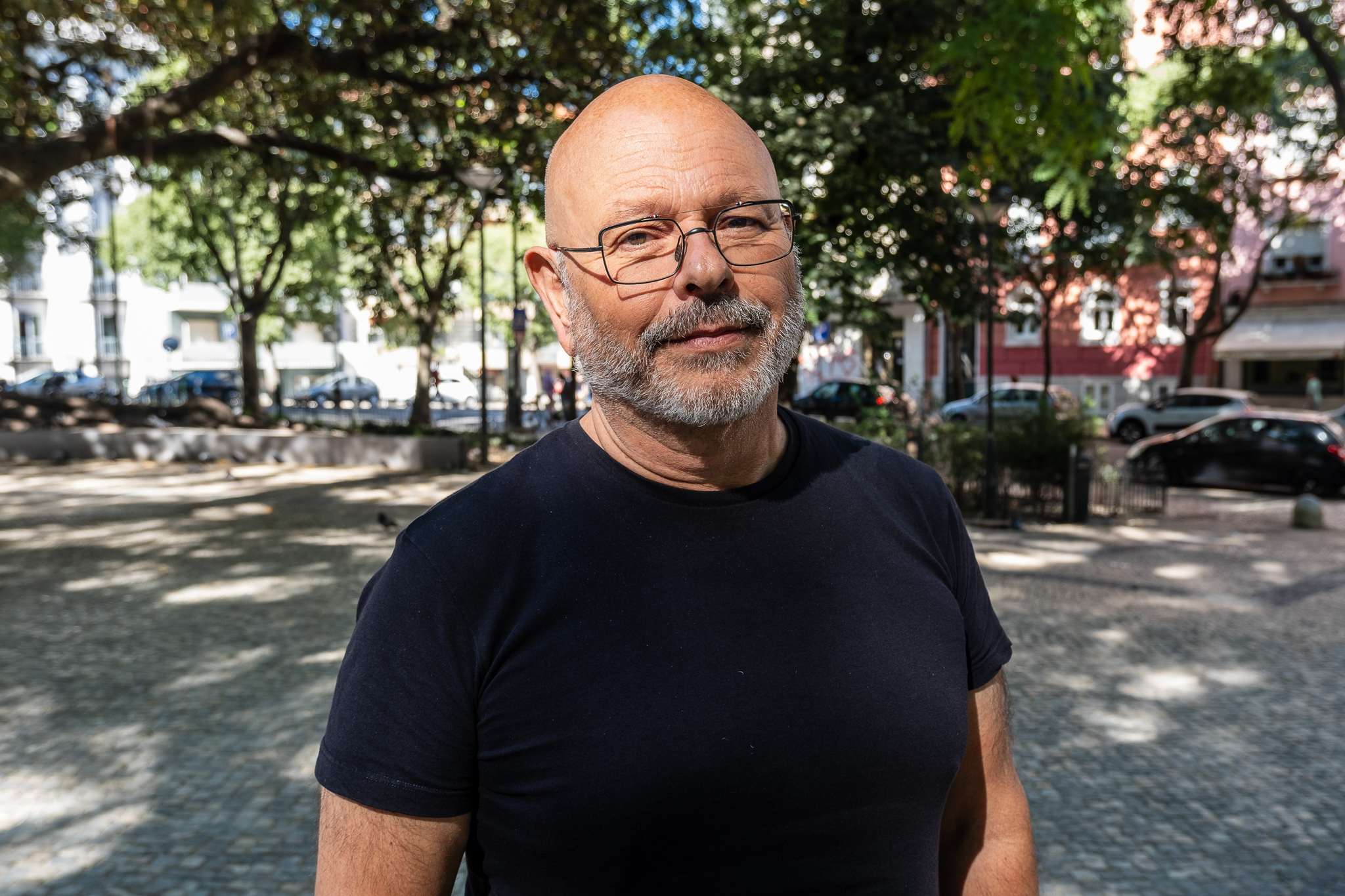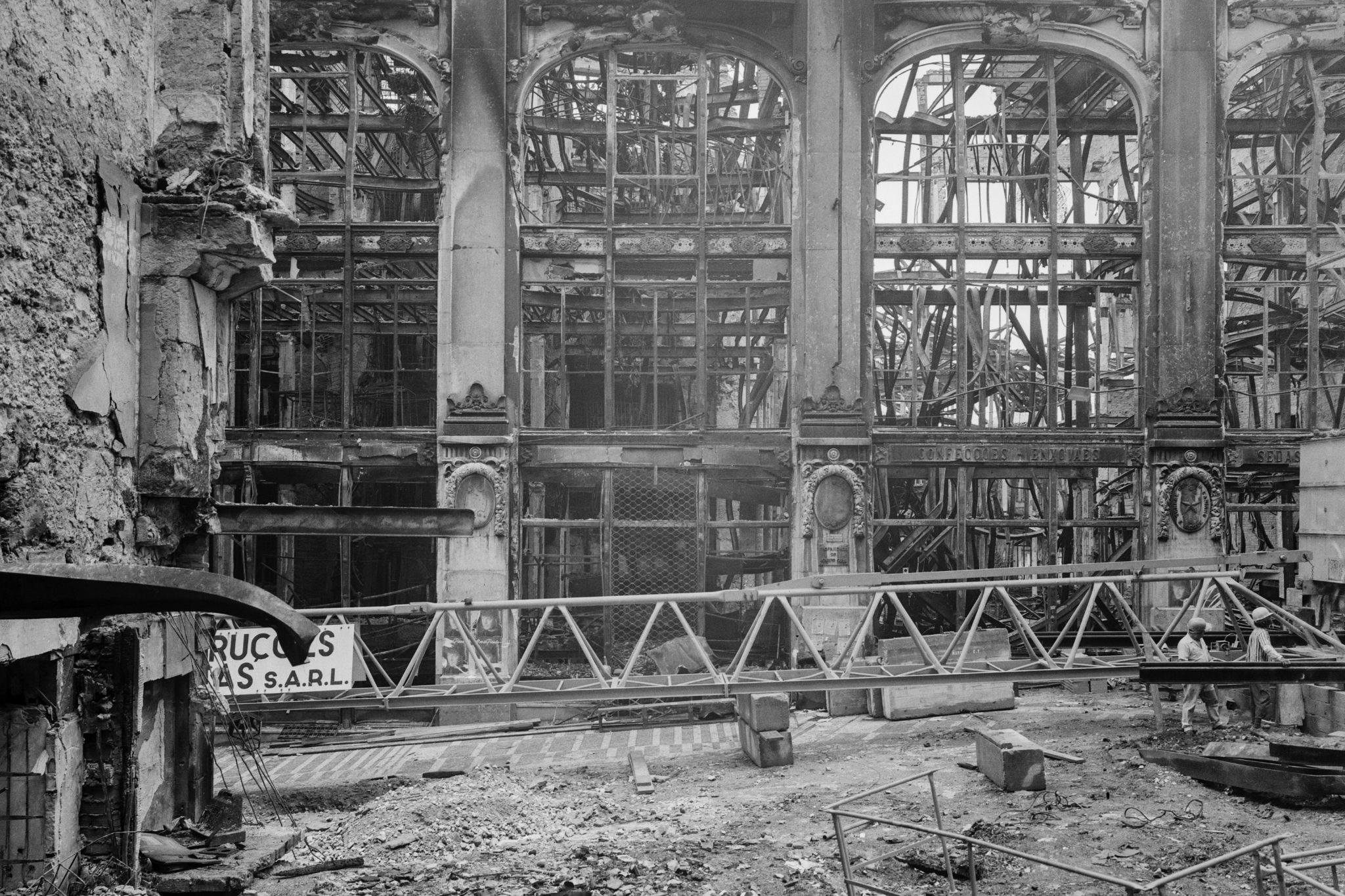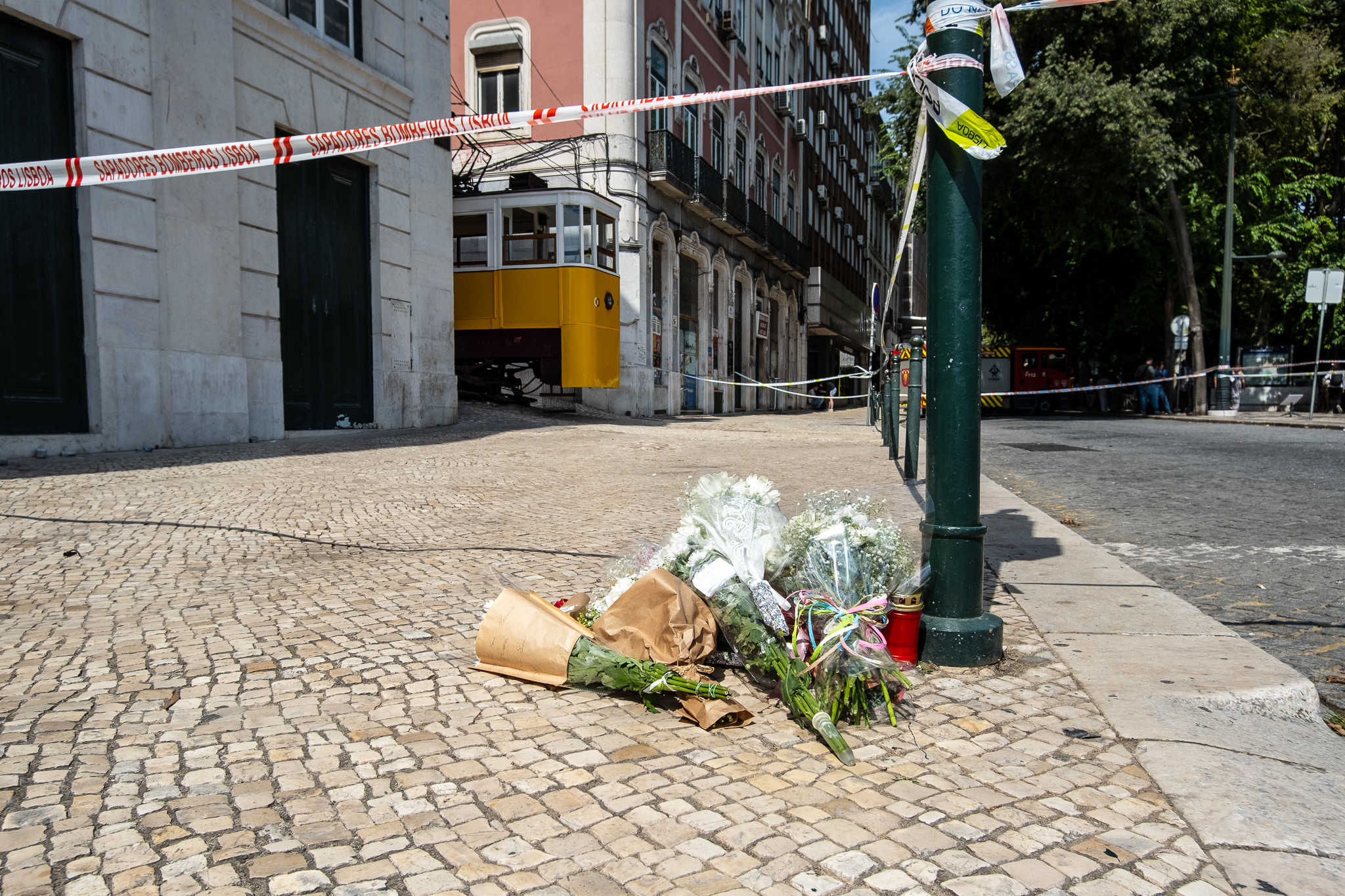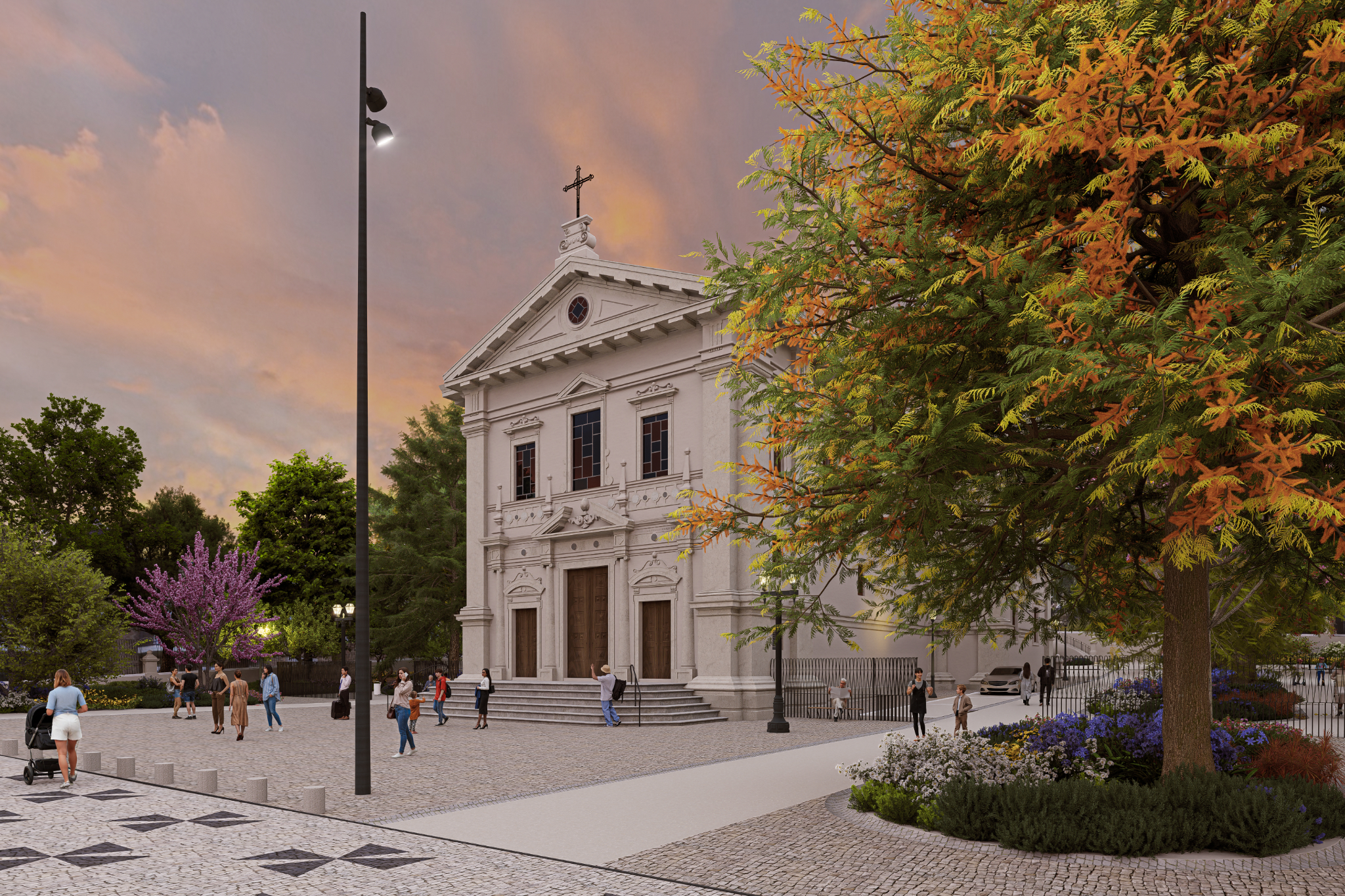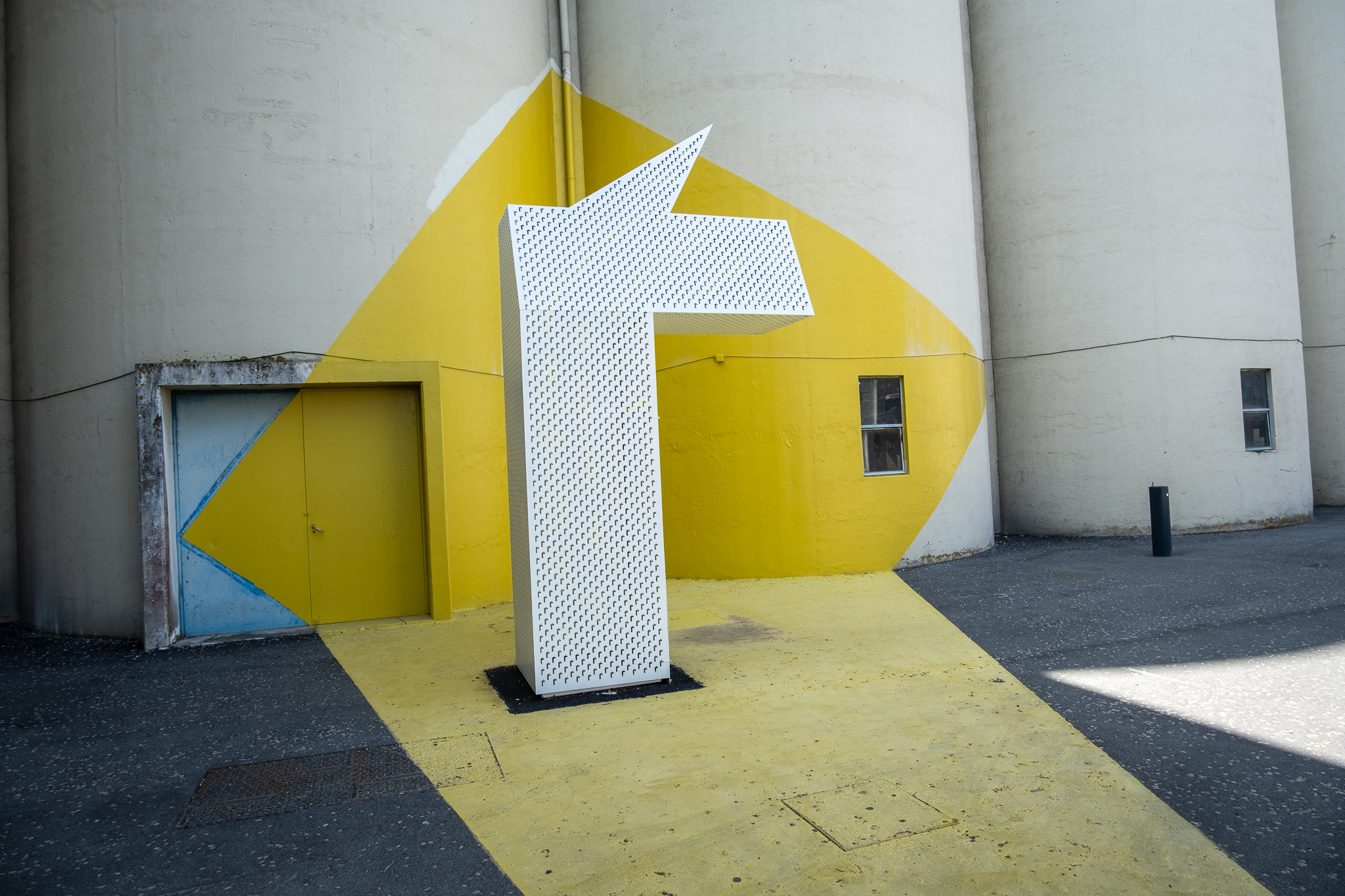In Arroios, Rua Cruz da Carreira has been requalified with better walking conditions. Miguel and Silke now want to transform their street into a social space, where the neighborhood can meet and develop bonds.
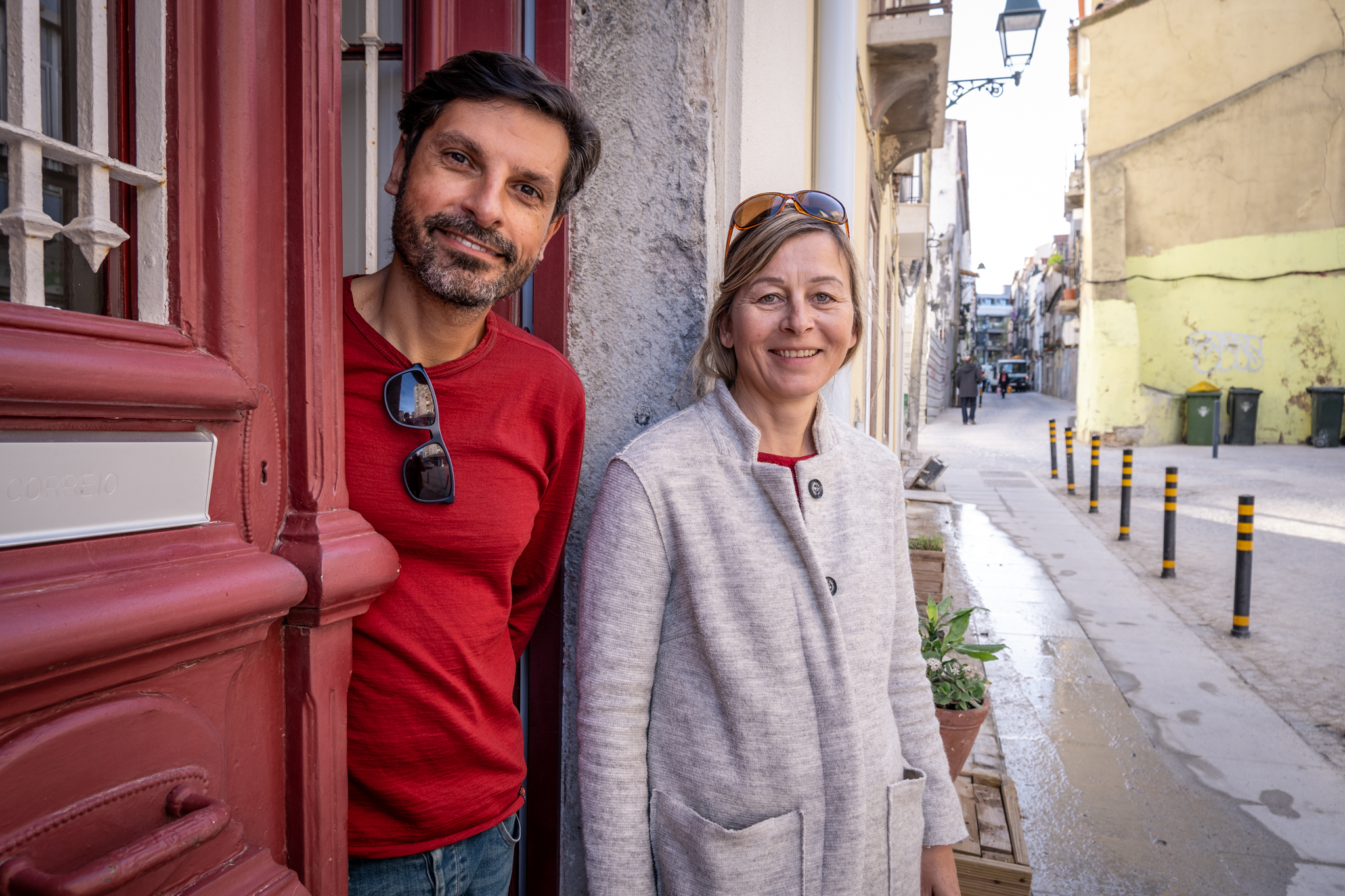
Narrow sidewalks, a few bollards or other barriers preventing abusive parking, garbage cans pushed up against the walls of buildings, and all in all, a narrow street where pedestrian space and car space were very well defined. Until recently, this was Rua Cruz da Carreira - a quiet street in the parish of Arroios, right next to Campo Mártires da Pátria. But Miguel Macedo and Silke Jellen, residents at number 3, could imagine a different space.
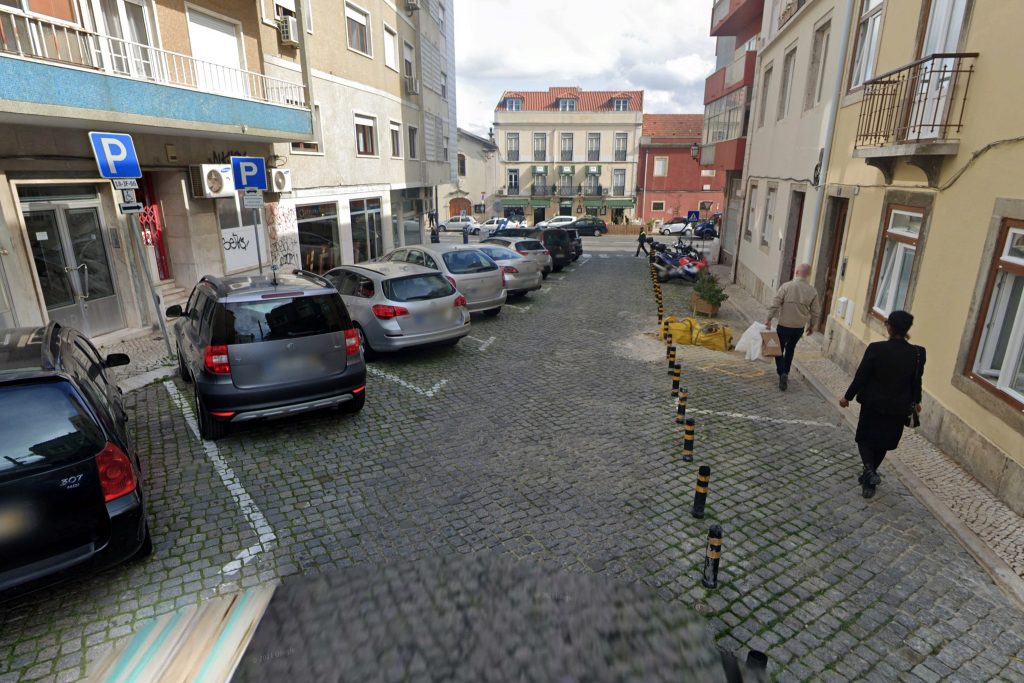
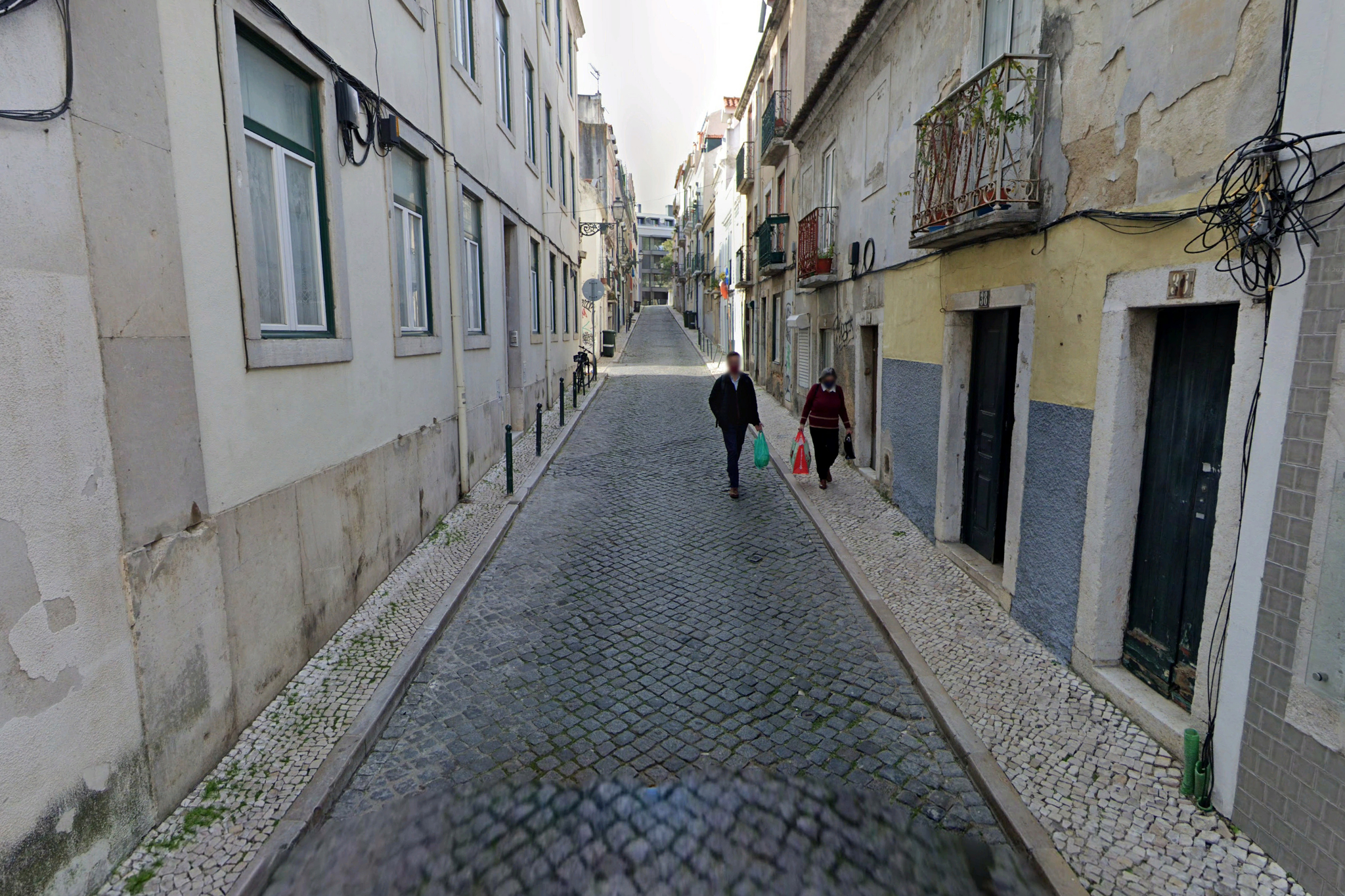
In 2021, the street went under construction in a project executed by Junta de Freguesia de Arroios with funding from the Lisbon City Hall and that resulted in a coexistence zone: the lines between what was sidewalk and what was road disappeared. Now, the area is primarily a pedestrian area and vehicles are invited to cross it with extra attention and restrained speed. The intervention gave Cruz da Carreira Street the same aspect that, years before, Travessa São Bernardino and Travessa da Recolhidas, adjacent to that street, had received. The residents now have an improved public space that invites them to leave home, to walk, to play, to talk with their neighbors.
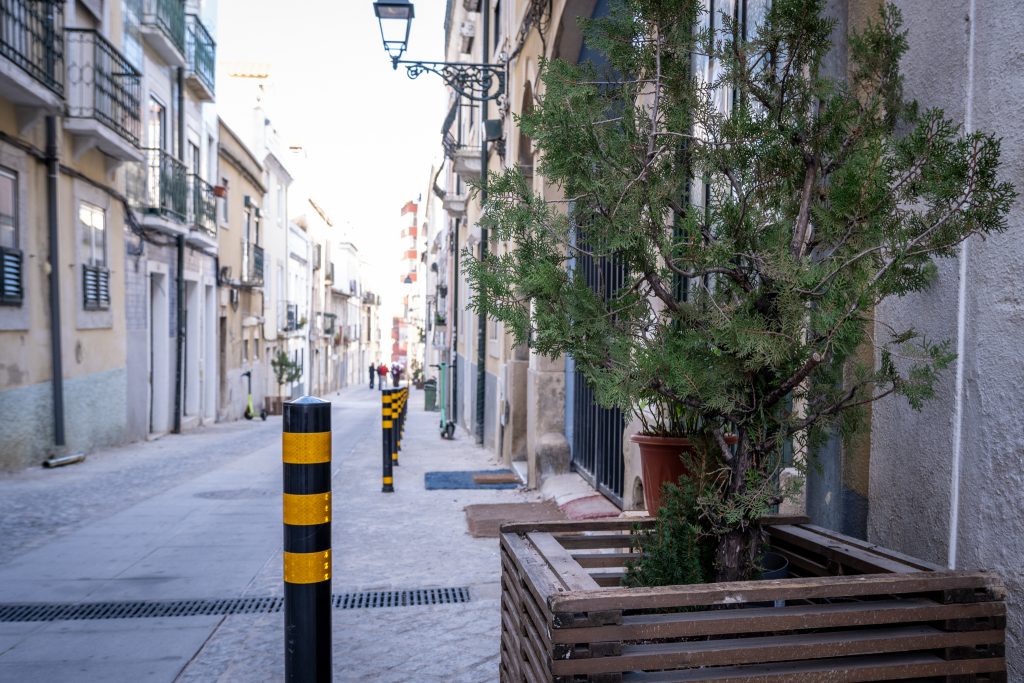
There are no parking spaces on Cruz da Carreira Street except outside Miguel and Silke's door. There the street widens and forms a small square, where eight spaces for cars have been designed, as well as a pocket for motorcycles and a space for bicycles. "This should be a pedestrian plaza here, with only one or two places just for reduced mobility and loading and unloading"says Miguel, who moved with Silke to that street about four years ago. At the time, there was parking on both sides of the square, which meant that they often couldn't get in or out of the house with their bicycles, or with some bulky groceries or, possibly, a stroller.
The sidewalk outside the house was tiny (and non-compliant with the accessibility law) and, as if that wasn't enough, the seats were charged by EMEL. "I used to say that if an ambulance came to pick me up, the stretcher wouldn't go through the door." Unhappy, Miguel says that he talked to the City Hall, the Parish Council and EMEL to get the situation resolved; after some insistence (as unfortunately usually happens in these cases), he was finally vindicated. The parking lot was removed and replaced by rubber beacons - a good thing, he says. and Miguel and Silke began to occupy the area with a small home garden.
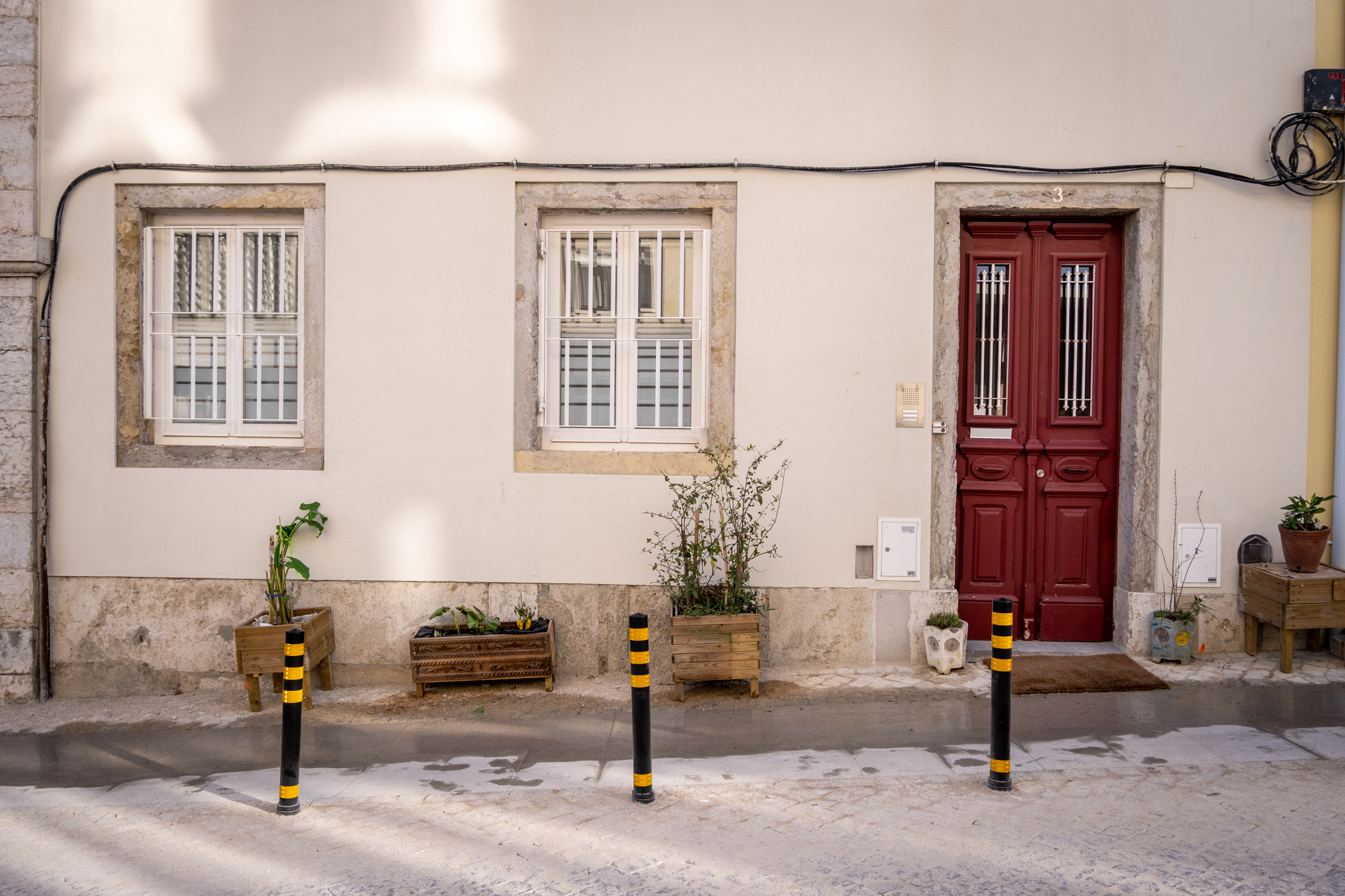
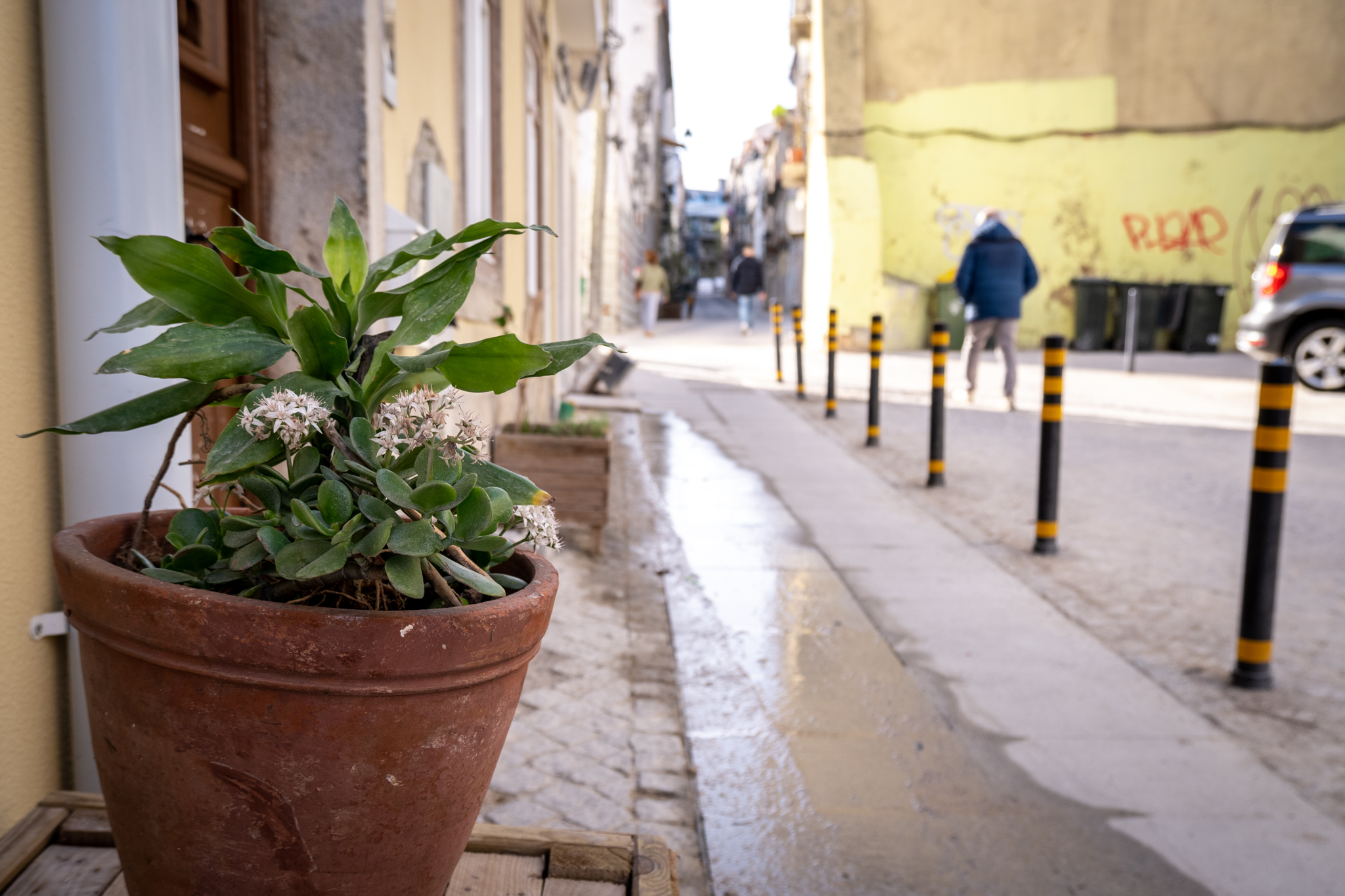
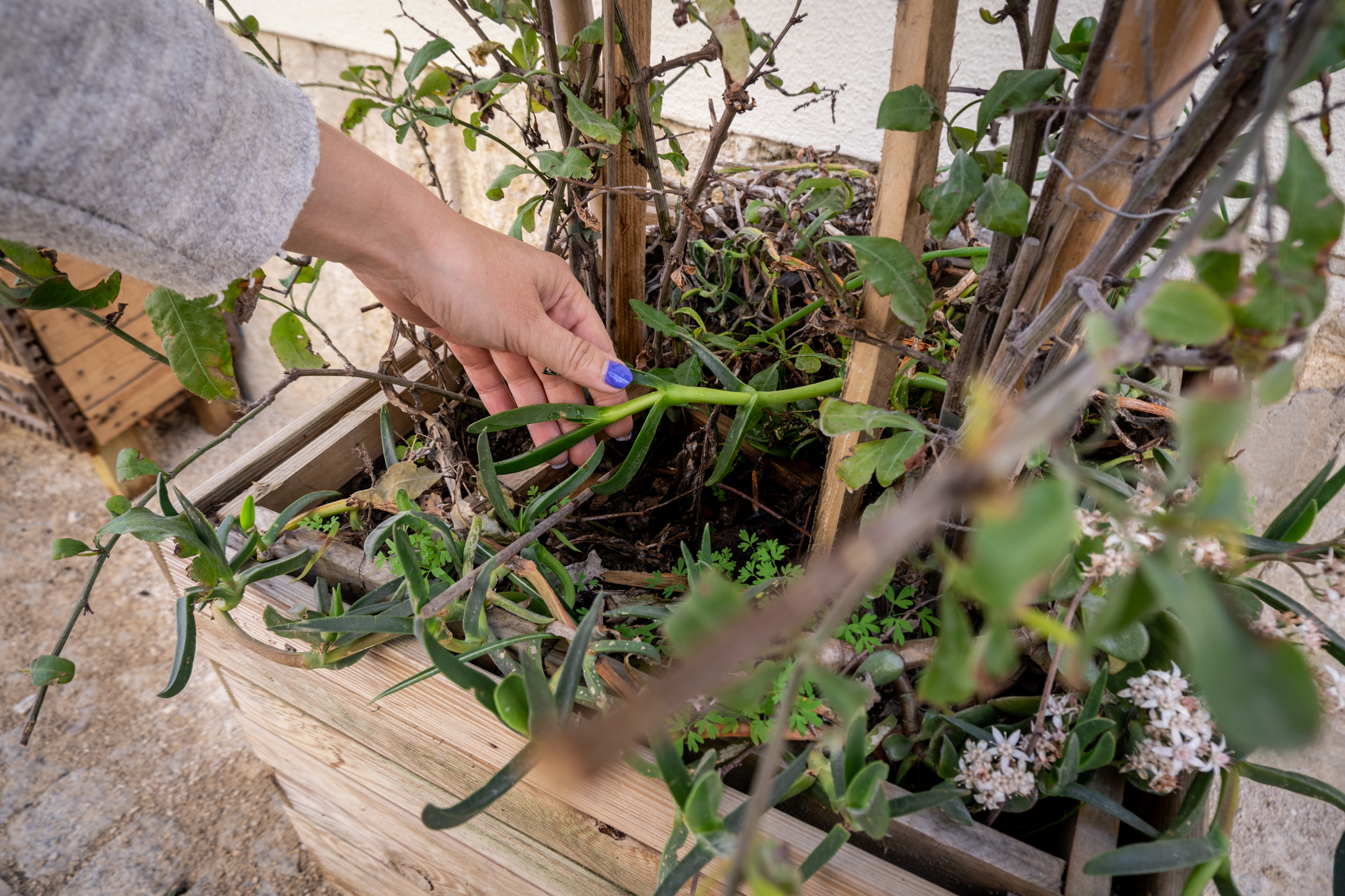
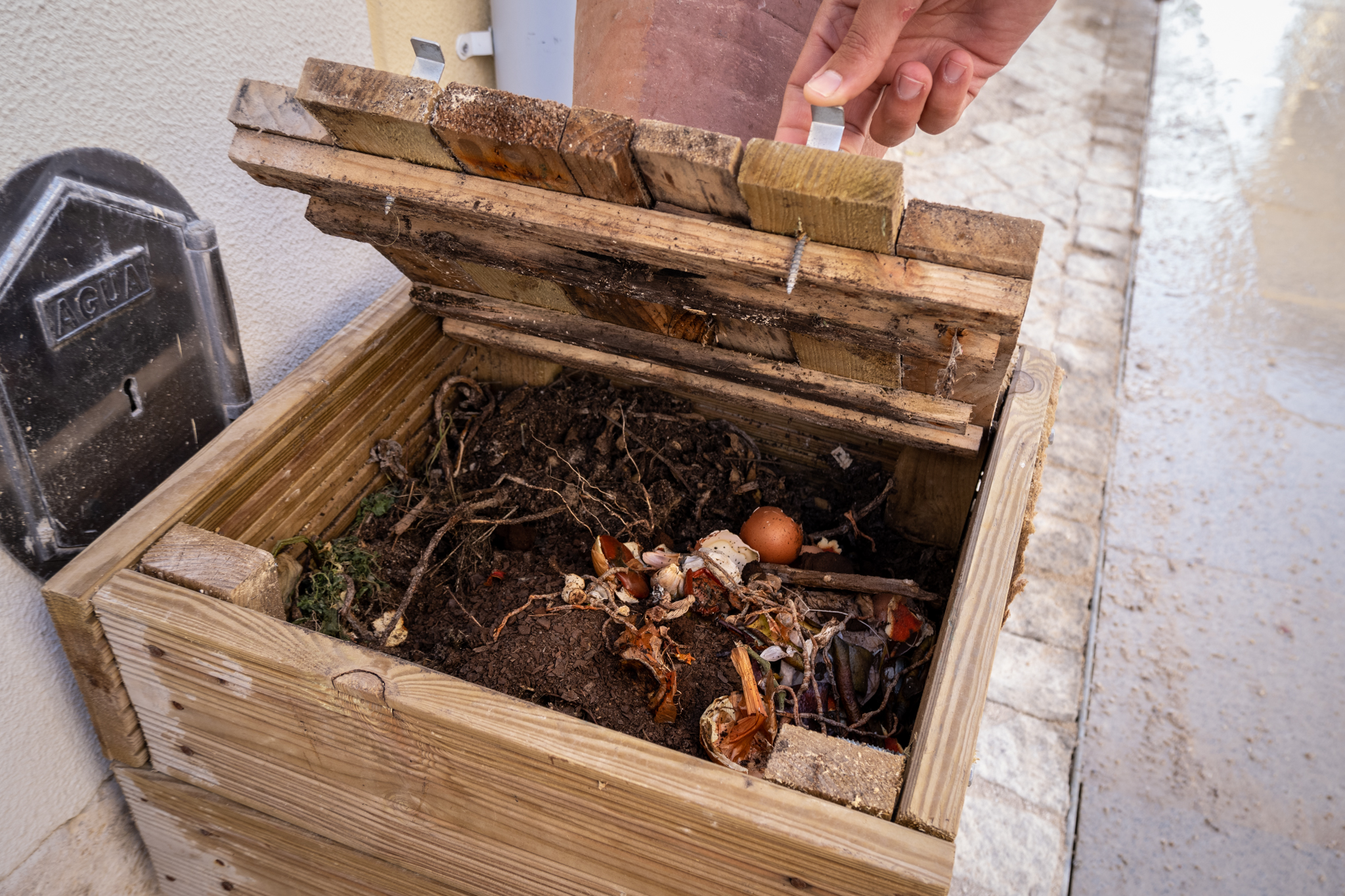
From number 3, they continue to water and care for the six pots that have become a distinctive element of the street. The plants are now withered because during the construction work they were taken inside, but Miguel and Silke believe that they will return to their former beauty and hope that they can infect the entire street, making it greener and more interesting.
In a petition addressed to the Junta de Freguesia (parish council), with 72 signatures collected among the neighborhood, they ask that after this work the street be energized with more pots and shrubs, which the people of the street can take care of. They also suggest benches, litter bins, and other street furniture arranged along the street to prevent temptations of abusive parking but also limit the speed, which is 20 km/h there because it is a coexistence zone. A sign should be put up to remind and educate drivers, indicates Miguel, acknowledging that coexistence zones are still a new concept and one that people are unfamiliar with.
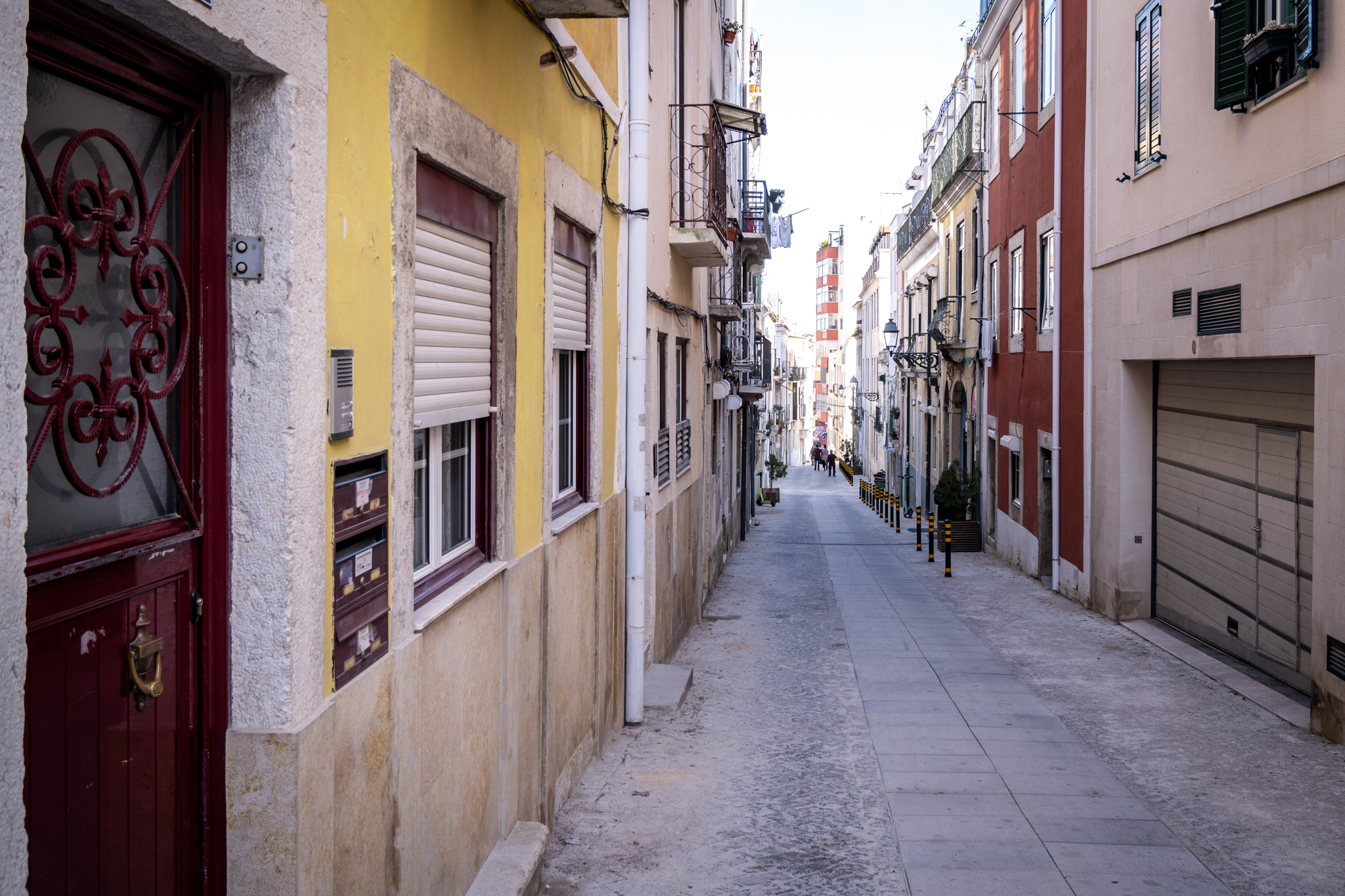
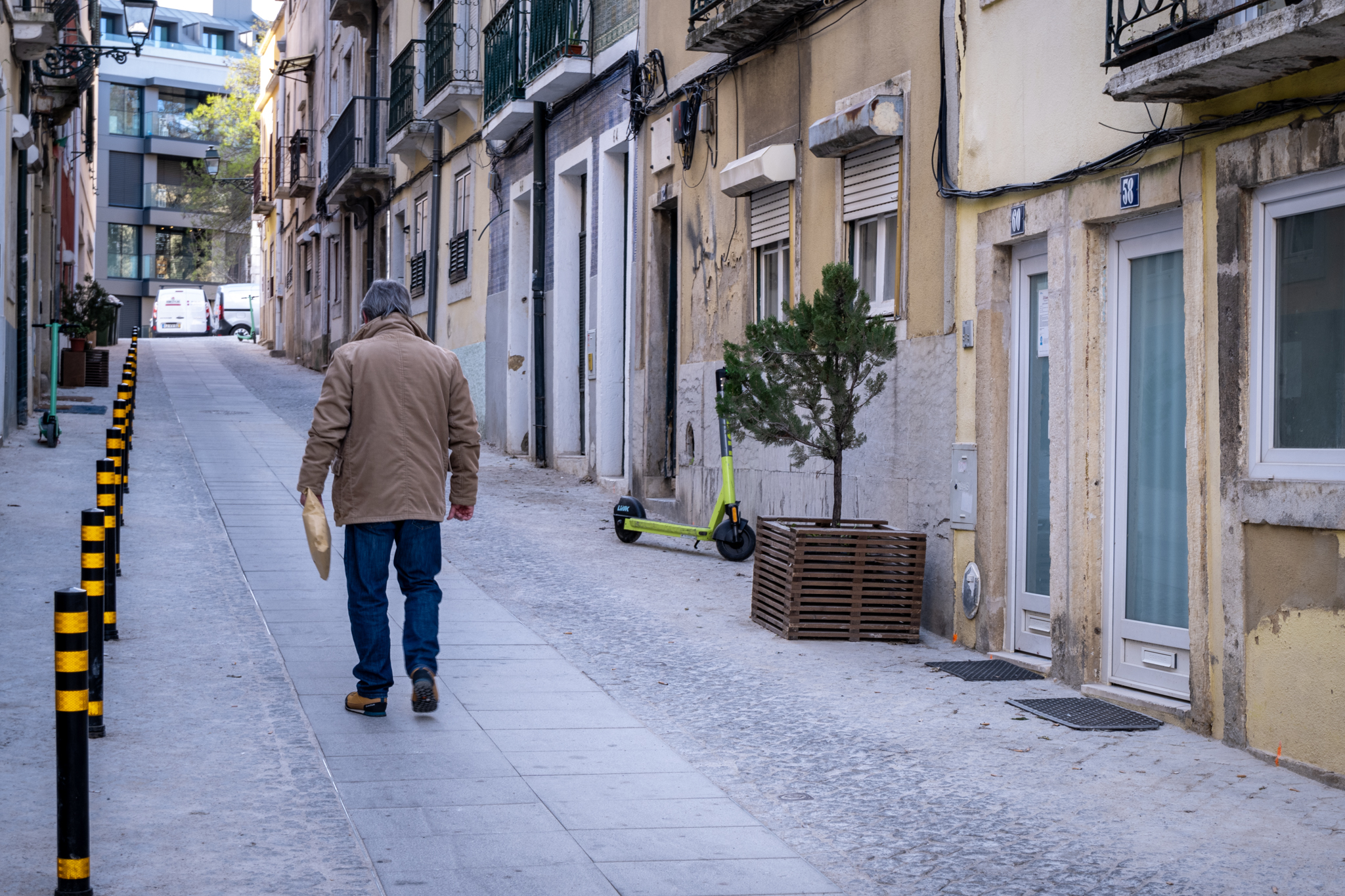
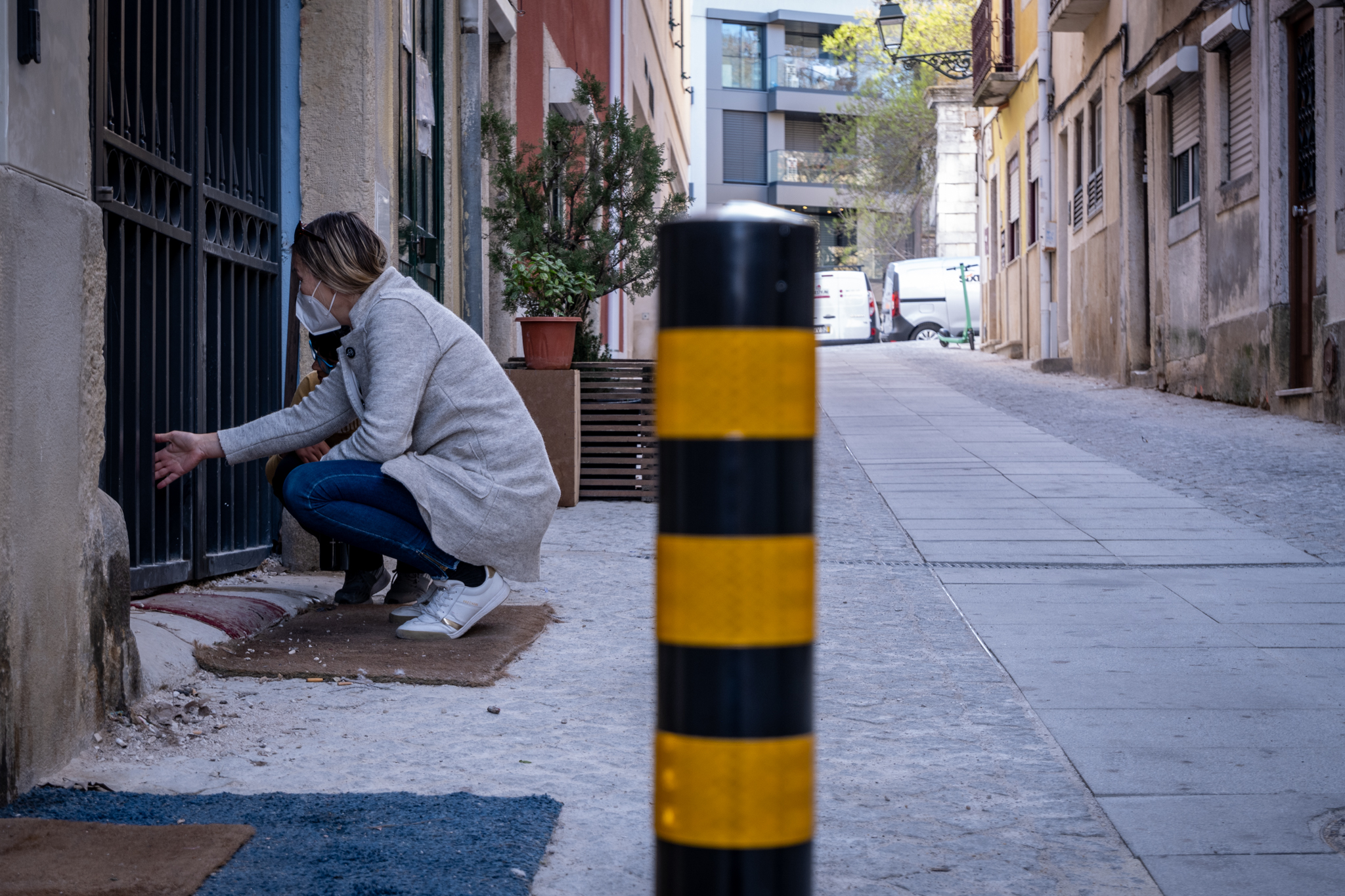
The idea would be to intersperse the flowerpots and street furniture between the two sides of the street to eliminate their straight profile and force the slowing down of traffic. With these elements, the rubber bollards placed on one side of the street to prevent vehicles from parking there could be removed, but those bollards end up separating the pedestrian space from the road space, and that is something you don't want in a coexistence zone. "The street should be a social space. And a more humanized street is an opportunity for encounters."says Silke. A German living in Lisbon, where she works as a translator and interpreter, she has no doubt that, in her country, that street "no bollards, of course not"because "the danger of illegal parking will not exist in Germany". "People are more aware that the street is for everyone"points, and "a parked car gives no joy or life".
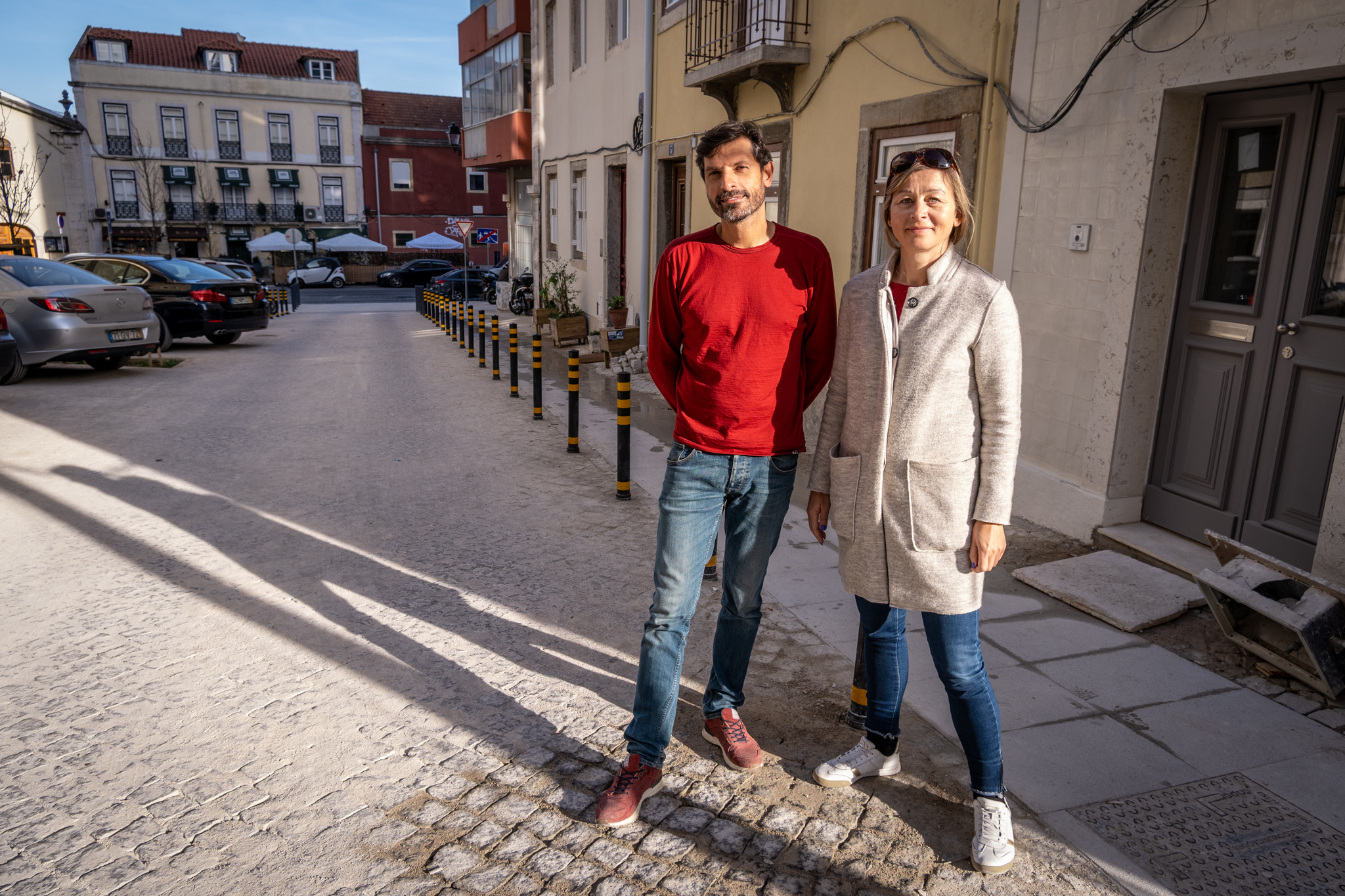
The Junta de Arroios has placed four wooden flowerpots along the street with small shrubs that the local community promises to take care of. Miguel questions, however, why not use wooden pallets to make more of these objects. "The Town Hall's urban hygiene services must have lots of pallets that get picked up and go to waste." There could even be a place where anyone could go to collect pallets, and then with neighbors organize an afternoon to jointly create the pots. "All of these vases of mine were made with salvaged material"he says. E "many of these plants were donated." He still has more at home - plants that some people give him because they don't want them anymore or that they simply leave on his doorstep. But not everything is roses. As in everything, the neighborhood is diverse, there are intrigues between some people, and "there are always those who don't like it". Not long ago, they had an ivy "beautiful" climbing up one of the walls and that it was gifted with salt. Miguel didn't notice and when he watered it the salt killed the roots. Now it is dry.

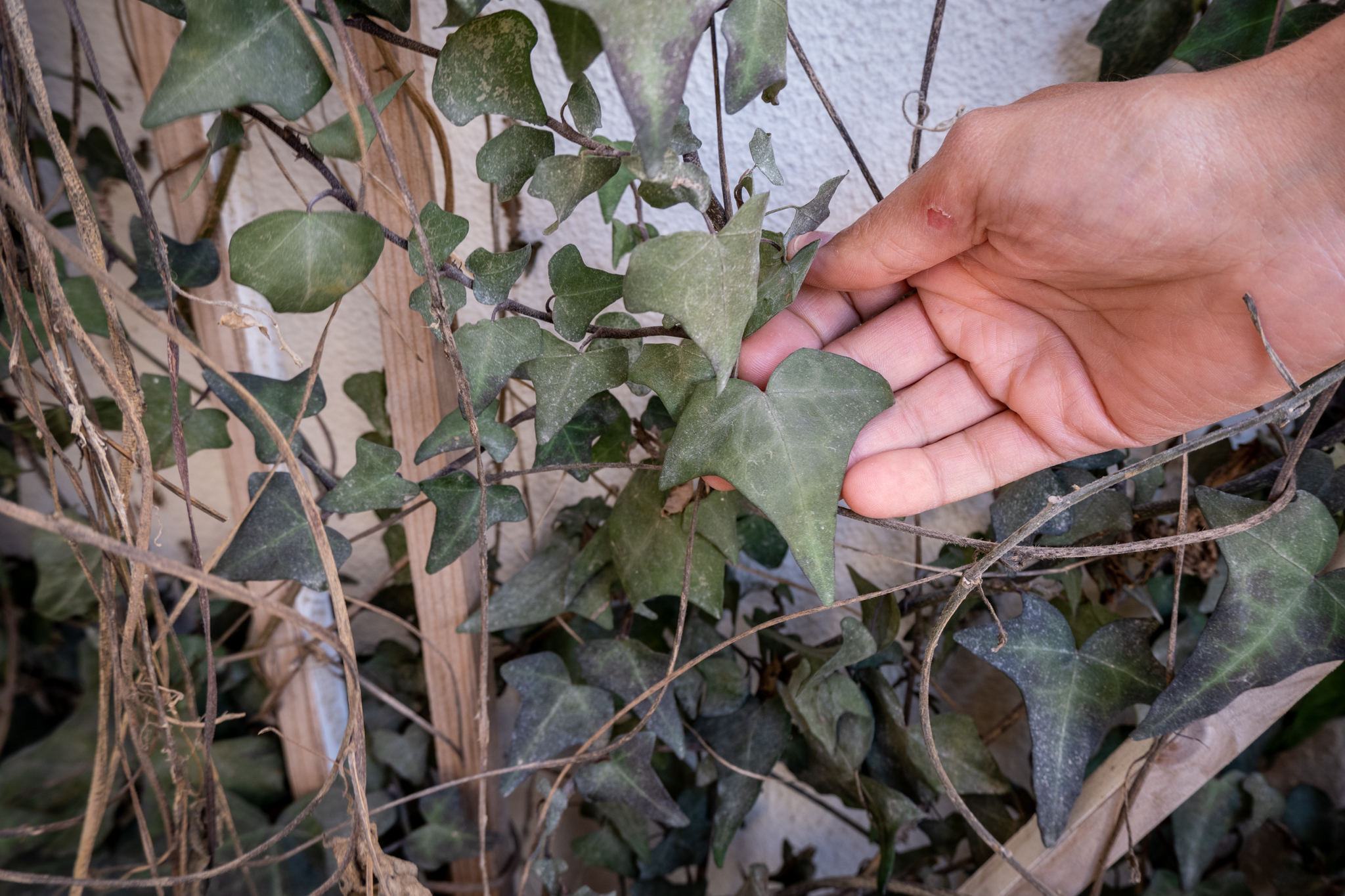
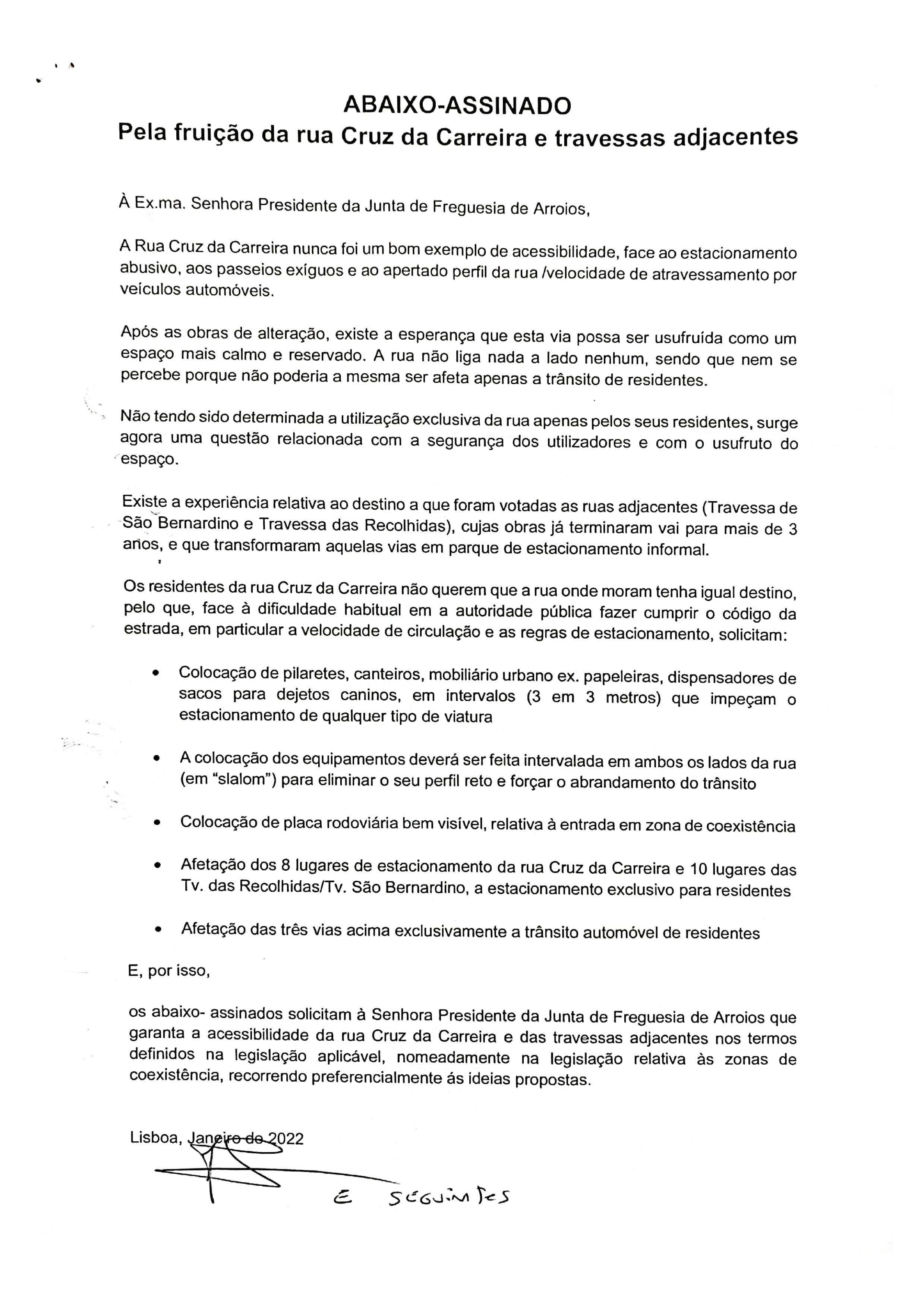
The general acceptance of the small garden that Miguel and Silke have designed on their doorstep is positive, however. There is always an initial discomfort because the neighborhood is strange when someone decides to take care of the space beyond their home - Nuno Prates, from the Donated Plants Garden, told us about a similar feeling in July last year. It's a thing "cultural". Silke says that in Germany people know each other better in their neighborhoods, even in a big city, and there is a greater sense of community. Here, he says, the basis is created with this intervention in the public space, but the work needs to be improved and a community strengthened among the neighborhood. There are examples in Lisbon where this happens. On the steps of Rua Cidade de Manchester, in Arroios, for example, there is a library where the neighborhood can exchange books among themselves and community planting and harvesting of edible fruits and vegetables have already been organized. And not far from there, in Penha de França, is being built a community garden made by the neighborhood and from which the neighborhood can feed.
Both examples had the stamp of Regador, a local association that has been stimulating the community around cultivation in a collaborative and cooperative spirit. Miguel would like to count on Regador's help to set up a small garden or community vegetable patch in a corner of the street where garbage cans now accumulate. And if you're talking about Regador, you're talking about Brincapé, a project that has been closing streets or corners of the city to traffic to promote street play. And if there's one street that could be closed, it's Cruz da Carreira. Since traffic has not been blocked in the middle to prevent the crossing, the neighbors are asking the parish council in their petition to close their street to residents only and to reserve the 18 parking spaces that exist not only in that street but also in the two other crosswalks for residents.

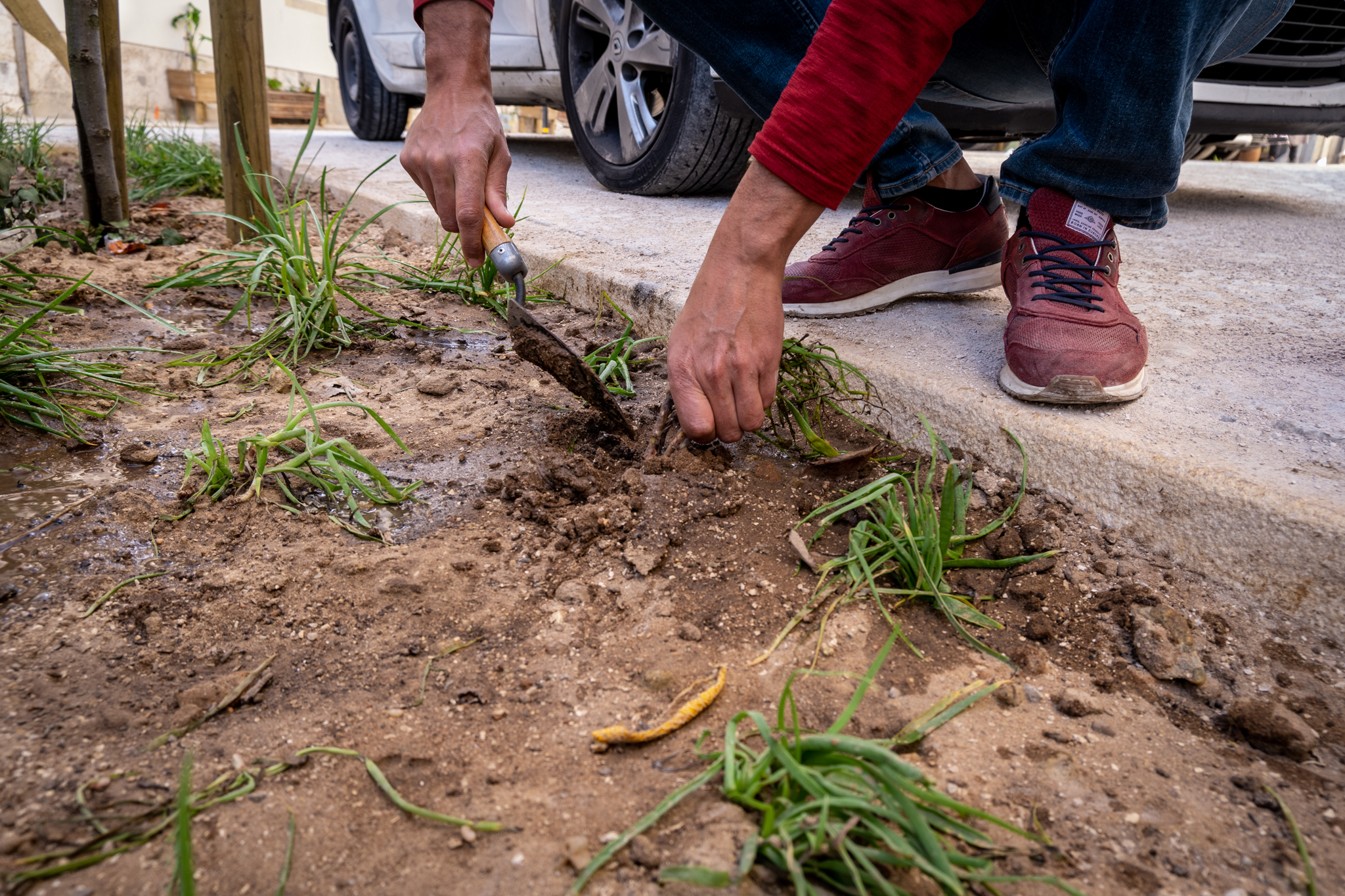
Miguel Macedo and Silke Jellen are hopeful about the new executive of the Arroios Parish Council, which they say is more willing to listen to its residents. Miguel regrets the difficulties he had with the previous Mayor, "even in the face of assertive, documented and direct criticism" of those who just wanted to improve their street and parish. With the new executive, they've been able to talk more and feel some support for the citizens' initiative; the council even gave them some plants to put in the tree trunks. But they'll have to wait and see how far this conversation takes them and whether they really manage to turn the street into a more social and dynamic space. For now, when the weather warms up, Miguel and Silke want to organize a barbecue to get to know their neighbors better and resolve any friction that may still exist.
